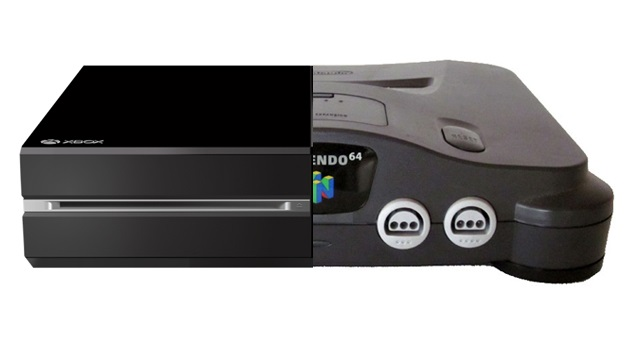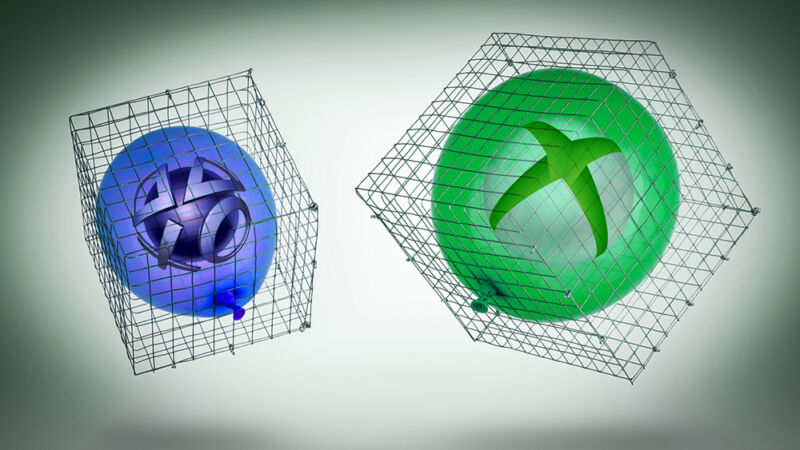Since the days of the NES, the one unshakable distinction between the PC and console gaming markets was the latter's "walled garden" approach to game distribution. For decades now, console makers have completely controlled the licensing and sales methods available for games on their own hardware.
So when Microsoft Xbox chief Phil Spencer says that he's open to breaking down that walled garden for his consoles, it's a big deal.
Speaking to Polygon in an interview at last week's Game Developers Conference, Spencer said he could foresee a future in which competing game marketplaces like the Epic Games Store or indie clearinghouse itch.io were available directly on Xbox hardware. “[Consider] our history as the Windows company," Spencer told Polygon. "Nobody would blink twice if I said, 'Hey, when you’re using a PC, you get to decide the type of experience you have [by picking where to buy games].' There’s real value in that."
In 2022, during its regulatory battle over acquiring Activision, Microsoft rolled out a set of what it called "Open App Store Principles" for "PC, mobile phones, and other general purpose computing devices." At the time, though, Microsoft was explicit that these principles didn't apply to consoles because "gaming consoles, specifically, are sold to gamers at a loss to establish a robust and viable ecosystem for game developers. The costs are recovered later through revenue earned in the dedicated console store."
But Spencer says that kind of razor-and-razor-blades model makes less sense in today's console gaming market. That's in part because a slowdown in Moore's law is making hardware costs more stubborn and in part because gamers are increasingly moving to mobile and PC-based competition.
"[Subsidizing hardware] becomes more challenging in today’s world," Spencer told Polygon. "And I will say, and this may seem too altruistic, I don’t know that it’s growing the industry. So I think, what are the barriers? What are the things that create friction in today’s world for creators and players? And how can we be part of opening up that model?"
Baby steps
Microsoft has made a few small moves toward opening up Xbox's ecosystem of games in the past. In 2013, the console maker allowed any indie developer to easily self-publish downloadable games for the Xbox One without the backing of a major publisher, which had been required in the past. Sony and Nintendo have also implemented similar policies on their consoles, which has led to an explosion of downloadable game releases from indie developers across all three platforms in recent years.
Microsoft's Universal Windows Platform program, started in 2016, also lets Xbox consoles run generic apps programmed for the more open Windows environment. But that program still requires those apps to be distributed through the Windows Store, letting Microsoft enforce restrictions on apps like emulators designed to run on the Xbox.

Letting competing game stores operate directly on the Xbox would go significantly farther than those moves, severely reducing the financial and content control Microsoft would have over games on its own console. Spencer's openness to that loss of control comes as Apple is being forced to relinquish that same control over iOS in Europe under that region's Digital Markets Act.
Epic Games, for its part, has been loudly arguing for years to get its Epic Games Store onto Apple's closed marketplace. But the Fortnite maker has always been relatively blasé about getting that same access to closed console marketplaces.
"There's a rationale for [the 30-percent fee] on console where there's enormous investment in hardware, often sold below cost, and marketing campaigns in broad partnership with publishers," Epic's Tim Sweeney told GamesIndustry.biz in 2018. "But on open platforms, 30 percent is disproportionate to the cost of the services these stores perform, such as payment processing, download bandwidth, and customer service."
The idea of letting other stores on the Xbox comes as Microsoft is downplaying the idea of exclusive games on the Xbox as a major focus. So far, that multi-platform pivot has only included four relatively small Xbox titles, but Polygon paraphrased Spencer as saying that "scrapping exclusivity on more and more Xbox games" is also part of the company's increased openness going forward.
All told, the new posture strongly recalls 2016, when Microsoft became the first console maker to support cross-platform online play for any Xbox game that wanted it. Sony finally followed suit years later, and today, the idea of letting players join together across different console platforms is considered normal (though still not universal). In the future, we may look back on Microsoft's new openness as the beginning of a similar shift in the way game distribution works on previously closed consoles.



3175x175(CURRENT).thumb.jpg.b05acc060982b36f5891ba728e6d953c.jpg)
Recommended Comments
There are no comments to display.
Join the conversation
You can post now and register later. If you have an account, sign in now to post with your account.
Note: Your post will require moderator approval before it will be visible.